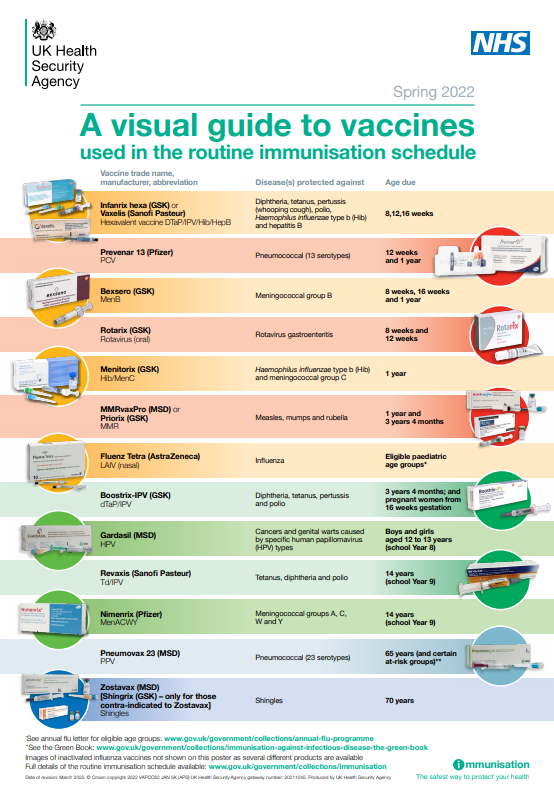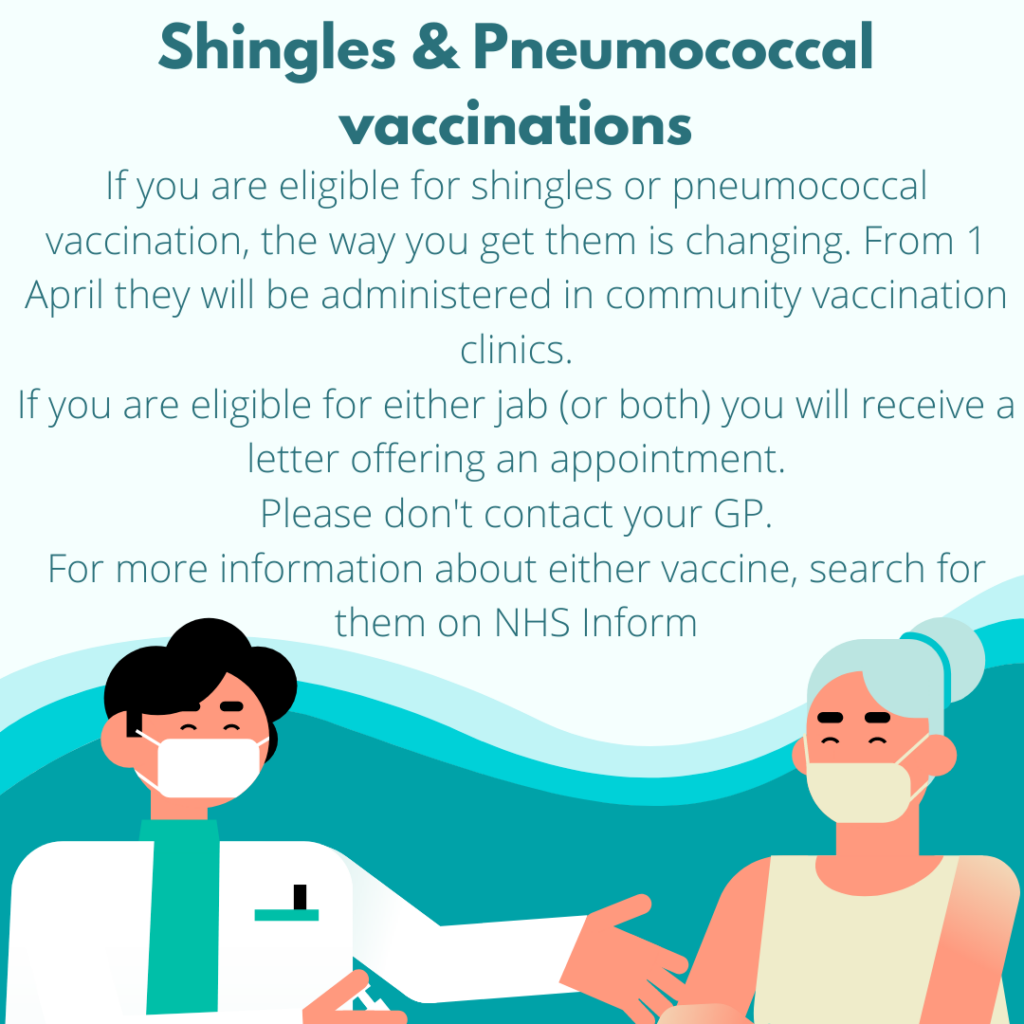Non-urgent advice: Travel Vaccinations
We do not offer travel vaccinations at the practice. You can inquire about them at your local pharmacy
For information about where you can get them, and what vaccines you may need for what country, please click here
Childhood Immunisations
Parents should make sure their child receives all their routine childhood vaccinations. This is crucial for protecting them against infectious diseases. It is important to have the vaccinations administered at the appropriate age to provide early protection and reduce the risk of infection. Contact us to learn about the necessary vaccinations for your child, their recommended schedule, and the benefits of each vaccination.

Flu Immunisation
We offer ‘at risk’ groups the flu vaccine at a certain time each year to protect you against the flu virus.
You may be invited for a free flu jab if you are:
- Over 65 years of age
- Pregnant
- A Carer
or have:
- A serious heart or chest complaint, including asthma
- A serious kidney disease
- Diabetes
- Lowered immunity due to disease or treatment such as steroid medication or cancer treatment
- Ever had a stroke
- A learning disability
Seasonal flu is a highly infectious illness caused by a flu virus. The virus infects your lungs and upper airways, causing a sudden high temperature and general aches and pains. You could also lose your appetite, feel nauseous and have a dry cough. Symptoms can last for up to a week.
Pneumococcal Vaccination
The pneumococcal vaccine (or ‘pneumo jab’ or pneumonia vaccine as it’s also known) protects against pneumococcal infections.
Pneumococcal infections are caused by the bacterium Streptococcus pneumoniae and can lead to pneumonia, septicaemia (a kind of blood poisoning) and meningitis.
Who should have the pneumococcal vaccine?
A pneumococcal infection can affect anyone. However, some people need the pneumococcal vaccination because they are at higher risk of complications.
These include:
- All children under the age of two
- Adults aged 65 or over
- Children and adults with certain long-term health conditions, such as a serious heart or kidney condition
Read more about who should have the pneumo jab.
How often is the pneumococcal vaccine given?
- Babies receive the pneumococcal vaccine as three separate injections, at 2 months, 4 months and 12-13 months.
- People over-65 only need a single pneumococcal vaccination which will protect for life. It is not given annually like the flu jab.
- People with a long term health condition may need just a single one-off pneumococcal vaccination or five-yearly vaccination depending on their underlying health problem.

Shingles
Shingles is a common and painful skin disease which is like a bad version of the chickenpox. A vaccine to prevent shingles is available on the NHS to people in their 70s. Most people will only need 1 dose, but some people who cannot have the routine vaccine for health reasons will need 2 doses.
The shingles vaccine is expected to reduce your risk of getting shingles. If you do go on to have the disease, your symptoms may be milder and the illness shorter. Once you become eligible for shingles vaccination a GP or practice nurse will offer you the vaccine when you attend the surgery for general reasons.